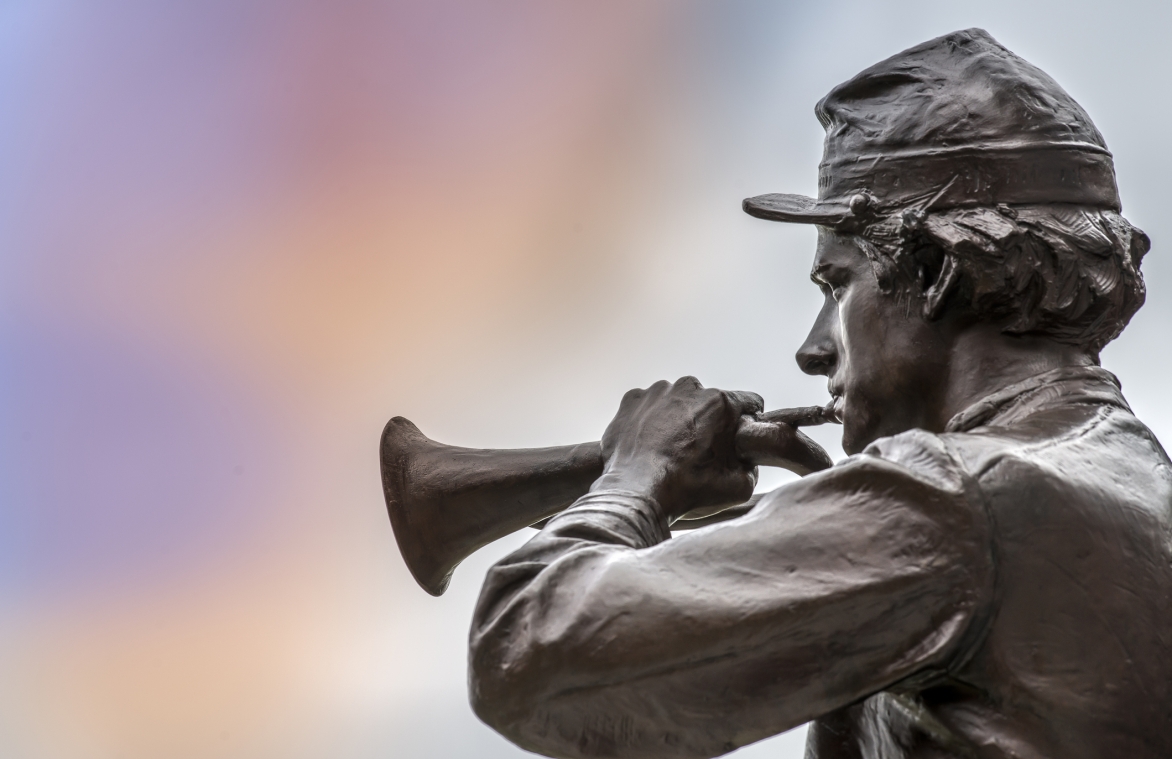A man charged and convicted in Giles County, Tenn., had his criminal convictions reversed because the jury in his case deliberated in a room adorned with Confederate symbols and mementos. The Tennessee Court of Criminal Appeals unanimously found that the jury’s exposure to these symbols unfairly prejudiced the defendant.
Prosecutors charged Tim Gilbert on multiple criminal counts, including aggravated assault, reckless endangerment, unlawful possession of a weapon by a convicted felon, and resisting arrest. The charges mainly stemmed from Gilbert’s alleged assault of his girlfriend.
After a jury convicted Gilbert, who is African-American, on the charges, he appealed the convictions on several grounds. One of his claims was that having jurors deliberate “in an inherently prejudicial Confederate Jury Room” violated his constitutional right “to a fair trial, his right to an impartial jury, his right to due process, and right to equal protection of the law.”
The jury room in question is called the “U.D.C. Room” after the United Daughters of the Confederacy. It features the “Stars and Bars,” the first flag of the Confederate states, and the Confederate flag with the “Blood Stained Battle” design. It also featured a framed picture of Jefferson Davis, president of the Confederate states, and a portrait of John C. Brown, a Confederate general who was born in Giles County.
The Court of Criminal Appeals acknowledged that the government can speak through symbols to the public and that such symbols can carry multiple messages. Furthermore, even though the U.D.C. is a private organization, the public will perceive that the government endorses such messages when it maintains such a room in its courthouse.
The appeals court explained: “Although the U.D.C. is a private organization and although the flag belongs to that organization, the location of the flag and the other items within the courthouse in a room used on a regular basis, which location has not been historically viewed as a public forum, clothes all of the items, including the flag in particular, with the imprimatur of state approval.”
The appeals court relied on the U.S. Supreme Court’s decision in a First Amendment challenge to Texas’ denial of specialty license plates for the Sons of Confederate Veterans in Walker v. Sons of Confederate Veterans (2015).
The Court of Criminal Appeals explained that a criminal defendant is entitled to a constitutional right to an impartial jury and that the jury should not be exposed to prejudicial information. It found that the room filled with Confederate symbols constituted such prejudicial information.
“Thus, although the government may choose to convey any message that it wants to the general public, it may not convey any message at all to the jurors in a criminal trial,” wrote Judge James Curwood Witt Jr. for the panel in its Dec. 3, 2021, decision in State v. Gilbert. “Because Giles County may not convey any message to the jury, we conclude that permitting the jury to deliberate in a room filled with Confederatememorabilia exposed the jury to extraneous information or improper outside influence.”
Gilbert is to be retried on the charges.
The Free Speech Center newsletter offers a digest of First Amendment and news media-related news every other week. Subscribe for free here: https://bit.ly/3kG9uiJ
David L. Hudson Jr. is a professor at Belmont University College of Law who writes and speaks regularly on First Amendment issues. He is the author of Let the Students Speak: A History of the Fight for Free Expression in American Schools (Beacon Press, 2011), and of First Amendment: Freedom of Speech (2012). Hudson is also the author of a 12-part lecture series, Freedom of Speech: Understanding the First Amendment (2018), and a 24-part lecture series, The American Constitution 101 (2019).

